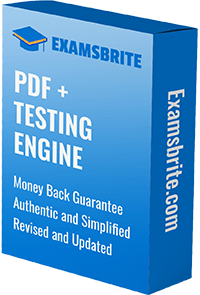
BCS Foundation Certificate in IS Project Management
Last Update Feb 28, 2026
Total Questions : 625
You will be glad to know that we serve better with the real exam topics related to your subject. We give you Project & programme management and consultancy certifications ISEB-PM1 questions answers. You can prepare them easily and quickly. BCS ISEB-PM1 exam dumps are also available with accurate exam content. All Exam questions of Project & programme management and consultancy certifications ISEB-PM1 Exam are related to latest BCS Foundation Certificate in IS Project Management topics, let’s take a look:



| Exam Name | BCS Foundation Certificate in IS Project Management |
| Exam Code | ISEB-PM1 |
| Actual Exam Duration | 90 minutes |
| Expected no. of Questions in Actual Exam | 40 |
| Official Information | https://www.bcs.org/qualifications-and-certifications/certifications-for-professionals/project-programme-management-certifications/bcs-foundation-certificate-in-is-project-management/ |
| See Expected Questions | BCS ISEB-PM1 Expected Questions in Actual Exam |
| Take Self-Assessment | Use BCS ISEB-PM1 Practice Test to Assess your preparation - Save Time and Reduce Chances of Failure |
| Section | Weight | Objectives |
|---|---|---|
| 1. Projects and Project Work (3 hours) |
|
|
| 2. Project Planning (3 hours) | Note: candidates are expected to have an understanding of both the product and activity based approaches to planning
|
|
| 3. Monitoring and Control (2 hours) |
- Team progress meetings - Error and change reports etc
- Graphical presentation of progress information e.g. accumulative resource charts (also known as S-curve charts) - Use of earned value analysis, including where it would be applied in project life-cycle (Note: it is not expected that candidates be able to calculate and interpret earned value figures)
- Timing, personnel and purpose of different types of reporting meetings
- Exception reports and plans - Management procedures involved in changing plans - Options, including extending or staggering deadlines, increasing resources, reducing Functionality or quality requirements, cancelling the project etc. |
|
| 4. Change Control and Configuration Management (1 hour) |
- Generation of change requests - Change request evaluation (e.g. its impact on the business case) - Change request authorisation
- Identification of configuration items - Product baselines - Configuration management databases: content and use |
|
| 5. Quality (2 hours) |
|
|
| 6. Estimating (2 hours) |
- Identification of productivity rates (e.g. function points per day) - Need for past project data to establish productivity rates - Factors affecting productivity rates (e.g. staff experience) - Estimation of effort for new projects using productivity rates and size drivers
|
|
| 7. Risk (2 hours) |
|
|
| 8. Project Communications and Project Organisation (3 hours) |
|
ISEB-PM1 Questions Answers | ISEB-PM1 Test Prep | BCS Foundation Certificate in IS Project Management Questions PDF | ISEB-PM1 Online Exam | ISEB-PM1 Practice Test | ISEB-PM1 PDF | ISEB-PM1 Test Questions | ISEB-PM1 Study Material | ISEB-PM1 Exam Preparation | ISEB-PM1 Valid Dumps | ISEB-PM1 Real Questions | Project & programme management and consultancy certifications ISEB-PM1 Exam Questions